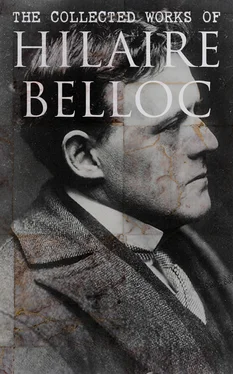Table of Contents
Table of Contents
Part I. The Political Objective
Part II. The Early War
Part III. The March to the Danube
Part IV. The Seven Weeks—The Three Phases
Part V. The Action
PART I
THE POLITICAL OBJECTIVE
Table of Contents
The proper understanding of a battle and of its historical significance is only possible in connection with the campaign of which it forms a part; and the campaign can only be understood when we know the political object which it was designed to serve.
A battle is no more than an incident in a campaign. However decisive in its immediate result upon the field, its value to the general conducting it depends on its effect upon the whole of his operations, that is, upon the campaign in which he is engaged.
A campaign, again, is but the armed effort of one society to impose its will in some particular upon another society. Every such effort must have a definite political object. If this object is served the campaign is successful. If it is not served the campaign is a failure. Many a campaign which began or even concluded with a decisive action in favour of one of the two belligerents has failed because, in the result, the political object which the victory was attempting was not reached. Conversely, many a campaign, the individual actions of which were tactical defeats, terminated in favour of the defeated party, upon whom the armed effort was not sufficient to impose the will of his adversary, or to compel him to that political object which the adversary was seeking. In other words, military success can be measured only in terms of civil policy.
It is therefore essential, before approaching the study of any action, even of one so decisive and momentous as the Battle of Blenheim, to start with a general view of the political situation which brought about hostilities, and of the political object of those hostilities; only then, after grasping the measure in which the decisive action in question affected the whole campaign, can we judge how the campaign, in its turn, compassed the political end for which it was designed.
The war whose general name is that of the Spanish Succession was undertaken by certain combined powers against Louis XIV. of France (and such allies as that monarch could secure upon his side) in order to prevent the succession of his grandson to the crown of Spain.
With the various national objects which Holland, England, the Empire and certain of the German princes, as also Savoy and Portugal, may have had in view when they joined issue with the French monarch, military history is not concerned. It is enough to know that their objects, though combining them against a common foe, were not identical, and the degrees of interest with which they regarded the compulsion of Louis XIV. to forego the placing of his grandson upon the Spanish throne were very different. It is this which will largely explain the various conduct of the allies during the progress of the struggle; but all together sought the humiliation of Louis, and joined on the common ground of the Spanish Succession.
The particular object, then, of the campaign of Blenheim (and of those campaigns which immediately preceded and succeeded it) was the prevention of the unison of the crowns of France and Spain in the hands of two branches of the same family. Tested by this particular issue alone, the campaign of Blenheim, and the whole series of campaigns to which it belongs, failed. Louis XIV. maintained his grandson upon the throne of Spain; and the issue of the long war could not impose upon him the immediate political object of the allies.
But there was a much larger and more general object engaged, which was no less than the defence of Austria—more properly the Empire—and of certain minor States, against what had grown to be the overwhelming power of the French monarchy.
From this standpoint the whole period of Louis XIV.’s reign—all the last generation of the seventeenth century and the first decade and more of the eighteenth—may be regarded as a struggle between the soldiers of Louis XIV. (and their allies) upon the one hand, and Austria, with certain minor powers concerned in the defence of their independence or integrity, upon the other.
In this struggle Great Britain was neutral or benevolent in its sympathies in so far as those sympathies were Stuart; but all that part of English public life called Whig , all the group of English aristocrats who desired the abasement of the Crown, perhaps the mass of the nation also, was opposed, both in its interests and in its opinions, to the supremacy of Louis XIV. upon the Continent.
William of Orange, who had been called to the English throne by the Revolution of 1688, was the most determined opponent Louis had in Europe. Apart from him, the general interests of the London merchants, and the commercial interests of the nation as a whole, were in antagonism to the claims of the Bourbon monarchy. We therefore find the forces of Great Britain, in men, ships, guns, and money, arrayed against Louis throughout the end of his reign, and especially during this last great war.
Now, from this general standpoint—by far the most important—the war of the Spanish Succession is but part of the general struggle against Louis XIV.; and in that general struggle the campaign of 1704, and the battle of Blenheim which was its climax, are at once of the highest historical importance, and a singular example of military success.
For if the general political object be considered, which was the stemming of the French tide of victory and the checking of the Bourbon power, rather than the particular matter of the succession of the Spanish throne, then it was undoubtedly the campaign of 1704 which turned the tide; and Blenheim must always be remembered in history as the great defeat from which dates the retreat of the military power of the French in that epoch, and the gradual beating back of Louis XIV.’s forces to those frontiers which may be regarded as the natural boundaries of France.
Not all the French conquests were lost, nor by any means was the whole great effort of the reign destroyed. But the peril which the military aptitude of the French under so great a man as Louis XIV. presented to the minor States of Europe and to the Austrian empire was definitely checked when the campaign of Blenheim was brought to its successful conclusion. That battle was the first of the great defeats which exhausted the resources of Louis, put him, for the first time in his long reign, upon a close defensive, and restored the European balance which his years of unquestioned international power had disturbed.
Blenheim, then, may justly rank among the decisive actions of European history.
In connection with the campaign of which it formed a part, it gave to that campaign all its meaning and all its complete success.
In connection with the general struggle against Louis, that campaign formed the turning point between the flow and the ebb in the stream of military power which Louis XIV. commanded and had set in motion.
From the day of Blenheim, August 13th, 1704, onwards, the whole French effort was for seven years a desperate losing game, which, if its end was saved from disaster by the high statesmanship of the king and the devotion of his people, was none the less the ruin of that ambitious policy which had coincided with the great days of Versailles.
* * * * *
The war was conducted, as I have said, by various allies. Its success depended, therefore, upon various commanders regarded as coequal, acting as colleagues rather than as principals and subordinates. But the story of the great march to the Danube and its harvest at Blenheim, which we are about to review, sufficiently proves that the deciding genius in the whole affair was that of John Churchill, Duke of Marlborough. The plan was indeed Eugene’s; and in the battle itself he shared the glory with his English friend and colleague. Again, the British troops present were few indeed compared with the total of the allied forces. At Blenheim, in particular, they amounted to less than a third of the numbers present. The excellence of their material, however, their magnificent work at the Schellenberg and on Blenheim field itself, coupled with the fact that the general to whom the final success is chiefly due was the great military genius of this country, warrants the historian in classing this battle among British actions, and in treating its story as a national affair.
Читать дальше












